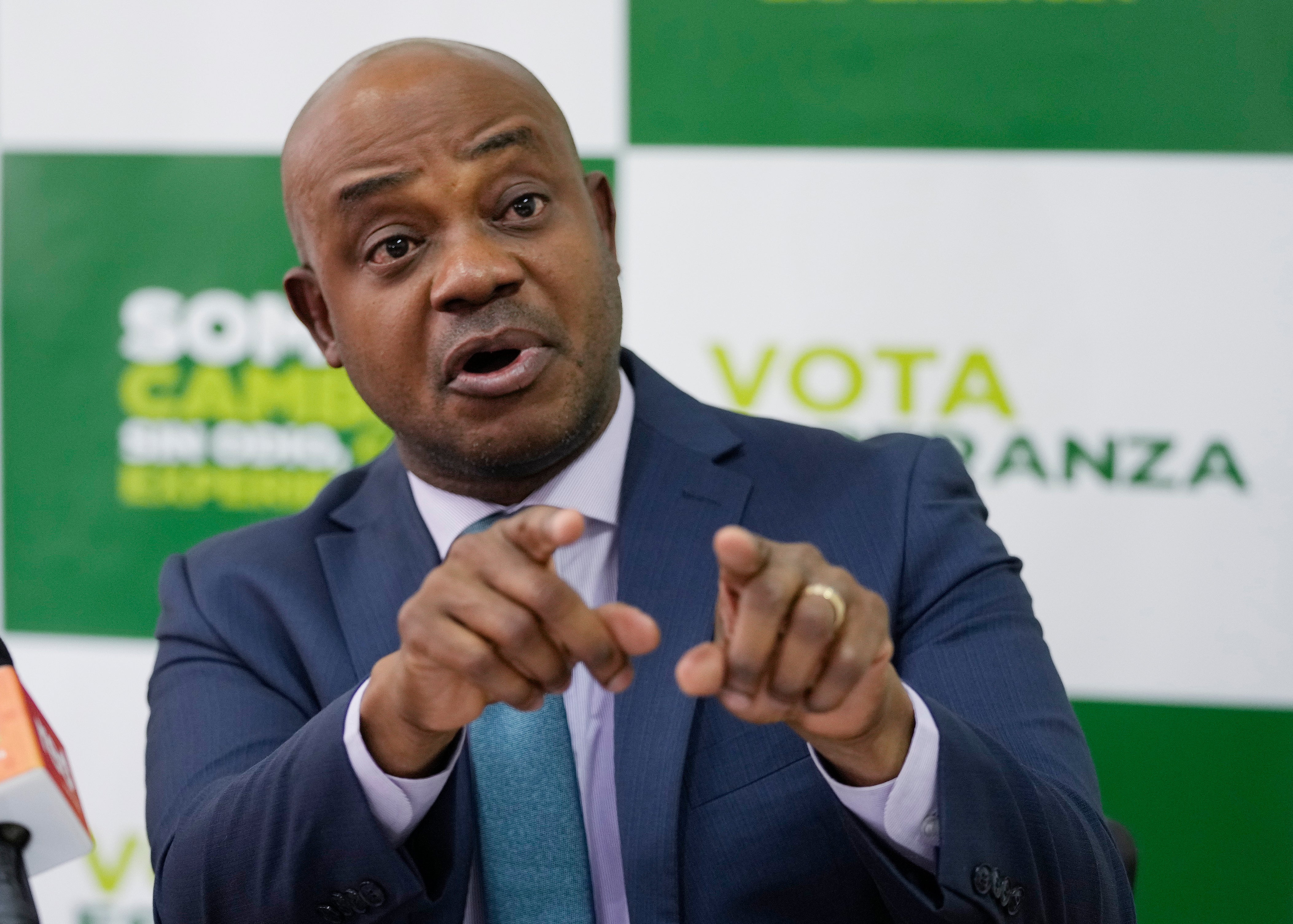Afro-Colombian politician tapped as ambassador to Washington
A veteran Afro-Colombian politician who studied in the Soviet Union and fled his country after being kidnapped by a paramilitary group has been named Colombia’s next ambassador to the United States

Your support helps us to tell the story
From reproductive rights to climate change to Big Tech, The Independent is on the ground when the story is developing. Whether it's investigating the financials of Elon Musk's pro-Trump PAC or producing our latest documentary, 'The A Word', which shines a light on the American women fighting for reproductive rights, we know how important it is to parse out the facts from the messaging.
At such a critical moment in US history, we need reporters on the ground. Your donation allows us to keep sending journalists to speak to both sides of the story.
The Independent is trusted by Americans across the entire political spectrum. And unlike many other quality news outlets, we choose not to lock Americans out of our reporting and analysis with paywalls. We believe quality journalism should be available to everyone, paid for by those who can afford it.
Your support makes all the difference.A veteran Afro-Colombian politician who studied in the Soviet Union and fled his homeland after being kidnapped by a paramilitary group has been tapped to become Colombia's first Black ambassador to the United States.
In a brief message posted on Twitter on Tuesday, leftist President elect Gustavo Petro wrote that Luis Gilberto Murillo would take Colombia's most important diplomatic post when he's sworn into office next month.
Murillo, 55, has a long record maneuvering in Washington's power circles, having established himself there more than two decades ago when fleeing death threats from right wing paramilitary groups.
Among his powerful supporters is Rep. Gregory Meeks, chairman of the House Foreign Affairs Committee, who helped craft aid programs for the traditionally marginalized Afro-Colombian population as part of negotiations over a U.S.-Colombia free trade agreement.
Murillo also has U.S. citizenship — something he'll have to renounce to take up his diplomatic post.
But as ambassador for Colombia's first leftist government, he'll need more than deep connections to stabilize a bilateral relationship in what some fear could be a rocky transition.
During the hard fought presidential campaign, Petro, a former guerrilla, took aim at forced coca eradication and extradition — centerpieces of the U.S.-backed drug war in Colombia — as well as the free trade agreement with the U.S. he blames for impoverishing local farmers.
He's also vowed to immediately re-establish diplomatic relations with Nicolas Maduro's socialist government in neighboring Venezuela.
Murillo's own background could help ease any tensions, according to Adam Isacson, a longtime observer of Colombia for the Washington Office on Latin America
During Colombia’s latest presidential election, Murillo ran as the vice presidential candidate for Sergio Fajardo, a centrist politician from Medellin. He only endorsed Petro after his own candidate failed to get enough votes to qualify for a run-off vote.
“His appointment is probably reassuring to a lot of people in the Biden administration,” said Isacson. “He’s not a hard leftist and he’ll be able to maneuver pretty well to show people that Petro isn't a radical either.”
Murillo was born into a poor family in the largely Afro-Colombian province of Choco, along Colombia’s Pacific Coast. The region is one of Colombia's poorest and home to a large population of descendants of African slaves who have long been underrepresented in business and politics.
He studied engineering in the Soviet Union on a scholarship, along the way meeting his Russian wife. He served twice as governor of his home province and has also been Colombia’s environment minister.
In 2000, Murillo was kidnapped by paramilitary groups and later fled to Washington with his family. One of his first jobs in the capital was to work as a bouncer at a night club. Eventually he found work in several international development agencies including the World Bank.
“It is a great responsibility to lead bilateral relations with the US,” Murillo said on Twitter. “We will work to strengthen the paths of peace and carry out coordinated work to bring greater prosperity to our two nations.”